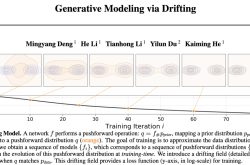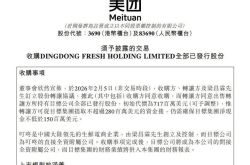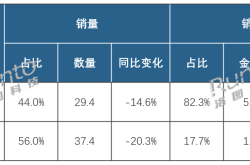A-share IPO 'Stalled' for 4 Years, Can Insta360 Succeed in Hong Kong Stocks?
![]() 12/09 2024
12/09 2024
![]() 676
676
Source | Bohu Finance (bohuFN)
After four years of A-share IPO 'stalling', Insta360 may switch to Hong Kong stocks.
According to Bloomberg, the leader in the panoramic camera industry is considering an IPO in Hong Kong. Insta360 expects a valuation of no less than RMB 15 billion. Additionally, informed sources revealed that the company also plans to raise funds through private placements before the IPO.
However, these plans are still in the preliminary stages, and it is entirely possible that Insta360 may ultimately decide not to list in Hong Kong. Regarding these rumors, Insta360 Innovation has remained silent and has not responded.
Looking back, Insta360 had been striving for an A-share listing. As early as October 2020, the company submitted an application for a listing on the STAR Market, passed the review in September 2021, and submitted registration documents in January 2022. However, due to various complex reasons, it has not been able to obtain approval from the China Securities Regulatory Commission (CSRC).
In August of this year, Insta360 founder Liu Jingkang posted frantically on his social media, stating, "We don't seek approval, we just want an objective clarification." He also revealed that the company would actively communicate to change or withdraw the IPO plan.
Despite the twists and turns on the IPO path, Insta360 has performed impressively in the market. In 2023, the company's sales accounted for 67.2% of the global consumer-grade panoramic camera market, reaching RMB 3.14 billion, a significant increase from 2022, and maintaining the global top spot for the sixth consecutive year.
Can Insta360 succeed in Hong Kong stocks?
01 Catching Up with GoPro
Insta360, a brand born in 2015, has rapidly risen in the field of smart imaging products. Its main business is the research, development, production, and sales of panoramic cameras and action cameras. Today, its products are sold in over 200 countries and regions worldwide, with millions of users.
Reviewing Insta360's growth journey, the data is particularly impressive. In 2021, Insta360's revenue surpassed the RMB 1 billion mark, nearly a tenfold increase from 2017. By 2022, this figure had doubled to RMB 2 billion. In 2023, Insta360's revenue approached RMB 4 billion, a nearly 100% year-on-year increase, achieving double growth for the second consecutive year.
In the past, markets in Europe, the United States, Japan, and South Korea have been dominated by imaging brands such as Facebook, Samsung, Google, Sony, Ricoh, and HTC. GoPro, in particular, has dominated the action camera segment for over a decade with no rivals.
However, the rise of Insta360 has disrupted this landscape. According to Frost & Sullivan data, Insta360 also demonstrates strong competitiveness in the global action camera segment and is expected to surpass long-time leader GoPro by the end of 2024.
Insta360's success as an up-and-coming player is first attributed to its precise market positioning. At the outset, Insta360 keenly captured the differences between domestic and international markets, deciding to focus on overseas markets. At that time, the domestic VR market was primarily focused on industrial and commercial applications, while consumer-grade panoramic cameras had already emerged overseas.
Insta360 decisively ventured overseas, distributing its products through online official stores, well-known e-commerce platforms, and an offline sales network spanning over 60 countries worldwide, including renowned channels such as Apple Store retail stores, Leica flagship stores, and Canon Gold Shops, bringing its products to markets in Europe, the United States, Japan, South Korea, and beyond.
Insta360 also places great emphasis on technological innovation. Founder Liu Jingkang is hailed as a "technological fanatic" whose dedication to technological innovation and focus on user experience are key to Insta360's global success.
Building on panoramic technology, Insta360 continues to delve deeper into core technologies such as image stabilization, AI image processing, and computational photography. Insta360's products consistently surprise users with innovative features like "AI auto-editing," "selfie stick invisibility," "intelligent tracking," and "bullet time," transforming cameras from mere recording tools into all-in-one "shoot, edit, and enhance" devices.
Furthermore, Insta360 is actively expanding its product line to meet the diverse needs of users. In addition to panoramic and action cameras, the company has also launched smart imaging products such as thumb cameras, video conferencing cameras, and AI smartphone stabilizers.
In terms of marketing strategy, Insta360 is also thriving. It is frequently seen on overseas mainstream platforms such as YouTube, Facebook, TikTok, Twitter, and Instagram. Many tech enthusiasts, photography bloggers, extreme sports enthusiasts, and even Hollywood stars have become KOLs for Insta360, driving sales for the brand.
Insta360 is also enthusiastic about "trend marketing." During events like the Super Bowl, NASA rocket launches, and the Paris Olympics, Insta360 leveraged live streaming to gain significant attention. These dazzling "fancy tactics" have helped Insta360 "capture" a large number of loyal fans in overseas markets.
Insta360's success is not accidental. By targeting niche markets and innovating products based on user pain points and demands, it has found blue oceans in a red ocean market, disrupting the industry landscape.
02 A Rocky Road to IPO
Insta360's IPO journey has been rocky, ultimately leading to regrettable delays. Behind this are both internal management oversights and changes in the external environment, weaving a complex web of fate.
Bohu Finance reviewed reports indicating that Insta360's prospectus submission progressed smoothly, with the IPO review passing within less than a year. However, just before the final step, issues such as shareholding by "former CSRC system personnel" halted the process.
According to CSRC inquiries, Chen Bin, a former CSRC official who had worked at the Shenzhen Stock Exchange for many years, indirectly held shares in Insta360 through Shenzhen Maigao and Xiamen Fukai but failed to disclose this in the prospectus. This omission was only discovered and questioned by the CSRC during the registration stage. Although Insta360 founder Liu Jingkang attempted to justify it based on the timing of regulations, the fact remains that Insta360 did not proactively disclose relevant information during multiple inquiries. During the third round of inquiries in December 2021, when the Shanghai Stock Exchange explicitly required verification of shareholder information, Insta360 still did not mention Chen Bin.
This undoubtedly planted hidden dangers on Insta360's IPO path.
Additionally, Insta360 Innovation also had oversights in employee welfare management. The prospectus revealed that the company did not fully pay social insurance premiums based on total employee salaries during the reporting period, with a cumulative arrears of up to RMB 17.4724 million. Full and compliant payments only began in August 2021. The company did not clearly express its intention to make up for the previous arrears, which not only harmed employee rights but also reflected irregularities in the company's management.
Regarding corporate governance structure, the composition of Insta360's board of directors also attracted market attention. During the initial IPO review, the listing committee questioned the rationality and necessity of its 12 board members. Although the company subsequently adjusted by reducing the board to nine members, including three independent directors, it did not fundamentally resolve potential board decision-making deadlocks, increasing investors' risk perception.
Upon further examination, Insta360 also has subsidiaries that are loss-making or even have negative assets. Among its nine wholly-owned subsidiaries, seven are loss-making, with five bearing negative assets.
In recent years, IPO review standards have become increasingly stringent, and market volatility has intensified. Especially after August 2023, the CSRC temporarily tightened the IPO pace, leading to a significant decrease in the average monthly number of approval notices and IPO launches. In April 2024, the State Council issued new "National Nine Policies," further emphasizing strict gatekeeping for IPOs.
These policy changes undoubtedly increased the difficulty of Insta360's IPO.
Beyond the stalled IPO plan, Insta360's current situation is also not optimistic.
From the perspective of shareholder structure, Insta360 has experienced frequent changes. Major shareholders such as Suning have successively exited. On the eve of submitting the A-share prospectus, shareholders such as Suning Rundong successively transferred their shares and have now completely exited. Additionally, institutional shareholders such as CYZone and Xunlei in Hong Kong have also reduced or sold their holdings.
Notably, the founding team, represented by founder Liu Jingkang, has also frequently cashed out through equity transfers. For example, the employee stock ownership platform Lanfeng Management transferred some equity for nearly RMB 30 million in 2019, from which Liu Jingkang personally received more than RMB 23.6 million after tax.
This contrasts sharply with his previously advocated "no dividend" policy and has attracted much attention from the outside world.
After the A-share IPO stalled, Insta360 turned its gaze to overseas listings. However, the path to overseas listing is not without obstacles. With the significant decline in market capitalization of similar companies like GoPro on U.S. stock exchanges, the market generally believes that Insta360's valuation may not be ideal if it lists overseas.
Worse still, the company has also encountered a "337 investigation" in the United States, with GoPro accusing Insta360 of infringing on its patents, involving products that account for a significant portion of Insta360 Innovation's revenue.
As the demand for content creation grows and the number of outdoor sports enthusiasts increases, market demand continues to rise. According to Frost & Sullivan reports, the global action camera market is expected to grow to RMB 46 billion by 2026. However, market competition is also intensifying.
Take the domestic brand DJI as an example. Its "DJI-style going-out" strategy has been a model for other companies to follow, boasting advanced technology and customers in over 100 countries worldwide, making it a formidable competitor for Insta360. Additionally, rivals such as Akaso, Ricoh, and GoPro are also constantly making efforts.
Faced with fierce market competition, Insta360 has not remained idle but has focused on the integration of AI and smart imaging technology. Since 2018, Insta360 has invested significant resources in AI technology research and development, independently developing multiple AI imaging functions such as AI editing, automatic framing, and deep tracking.
In the past three years, Insta360 has invested over RMB 100 million in research and development, with nearly half of its team dedicated to R&D and possessing over 700 domestic and foreign authorized patents. Taking Insta360's new AI panoramic camera as an example, this product greatly enhances user convenience in shooting and post-processing by integrating AI capabilities.
Beyond technological innovation, Insta360 has also continuously launched new products and expanded its product line to enhance market competitiveness. The company has introduced customized products tailored to different groups such as professional photographers, travel enthusiasts, and corporate users, meeting the needs of various scenarios and users.
Simultaneously, Insta360 has actively sought cross-border collaborations, jointly launching innovative products such as limited-edition collaboration gift boxes with brands like FAW-Volkswagen Audi. As the global economy continues to integrate and consumer demand becomes increasingly international, Insta360 is expected to achieve faster growth through global market expansion.
In fact, in the primary market, Insta360's fundraising journey has been very smooth, attracting investors such as IDG Capital, Cyzone Ventures Angel Fund, and Qiming Venture Partners. However, progress in the secondary market has been slow.
Insta360's rocky experience serves as a wake-up call for companies planning an IPO: A company's success does not solely depend on the advancement of its products or technology but also on the standardization of its internal management and keen insight into the external environment. Only in this way can it go further and steadier in the capital market.
The cover image and accompanying images of this article belong to the copyright owners. If the copyright holders believe that their works are not suitable for public browsing or should not be used free of charge, please contact us promptly, and this platform will immediately make corrections.








